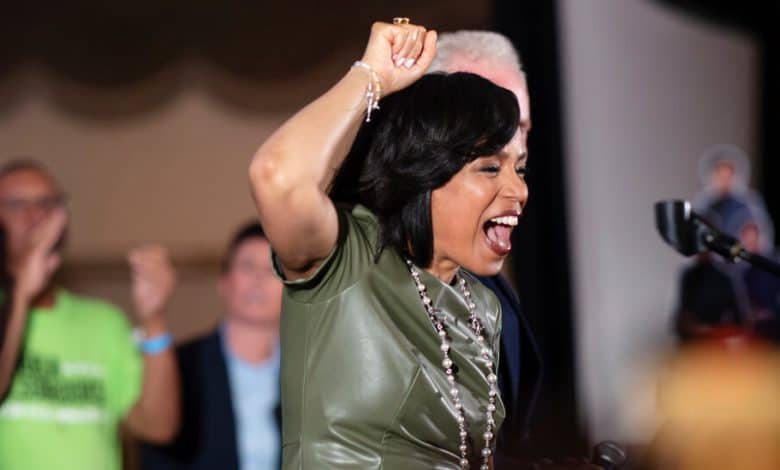Democrats Aim for a Breakthrough for Black Women in the Senate

Carol Moseley Braun, one of only two Black women to have been elected to the Senate in U.S. history, was in Paris on Wednesday when she was informed that another Black woman, Angela Alsobrooks, had won the Democratic nomination for an open Senate seat in Maryland.
“Praise the Lord,” she said with relief and surprise. “That’s wonderful.”
With Ms. Alsobrooks’s come-from-behind victory in Tuesday’s primary, voters in November will most likely have the chance to double the number of Black women ever elected to the Senate. Another Democrat, Representative Lisa Blunt Rochester, is the odds-on favorite to win her party’s nomination in September for an open Senate seat in heavily Democratic Delaware. If both win in November, for the first time, two Black women will serve in Congress’s upper chamber at the same time.
“It’s been a long time coming,” said Ms. Moseley Braun, who became the first Black female senator when she was elected from Illinois in 1992 and now serves as chairwoman of the United States African Development Foundation. The second, from California, is now the vice president, Kamala Harris. A third, Laphonza Butler, Democrat of California, was appointed to fill a vacant seat, but is not running for re-election.
For years, the national Democratic Party has faced criticism that it has declined to back Black women to the hilt, either in primaries or general elections, when they have run for statewide offices. Representative Barbara Lee, a seasoned political veteran and an antiwar icon, received barely a glance from the party apparatus this year when she ran for an open Senate seat in California.
Cheri Beasley, a former state chief justice in North Carolina, was given only a trickle of party money in her campaign for Senate in 2022. Stacey Abrams often grumbled about the level of support she garnered for her two runs for governor of Georgia.
Out of 75 Black women who have run or are running for the Senate since 2010, 10 have secured major-party nominations, including Ms. Alsobrooks and Valerie McCray, who is running a long-shot campaign in Indiana this fall. No Black woman has ever been elected governor, and out of the 28 who have run for the position since 2010, only four have become major-party nominees, according to data compiled by the Center for American Women and Politics at Rutgers University. All of the nominees have been Democrats.
